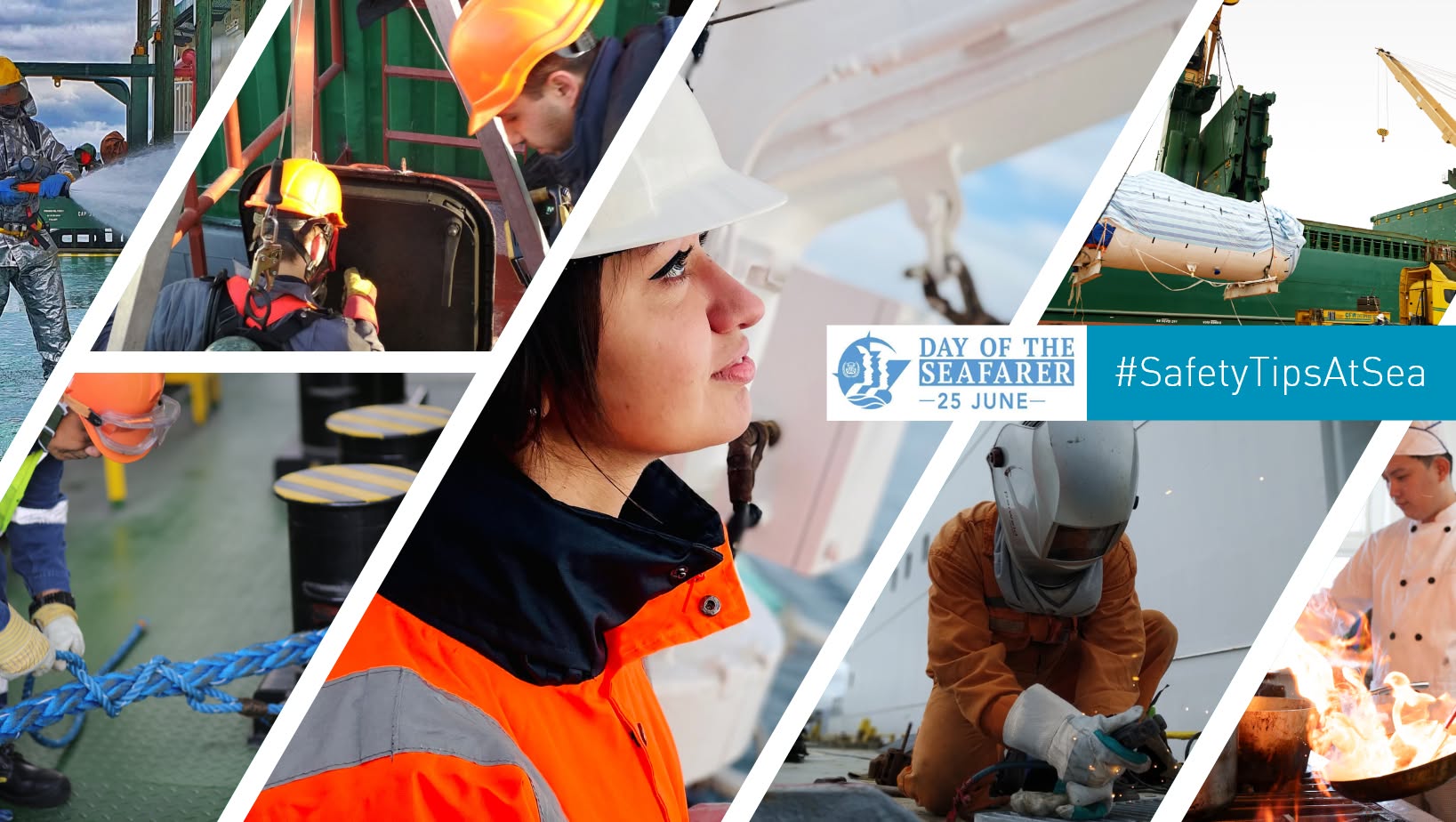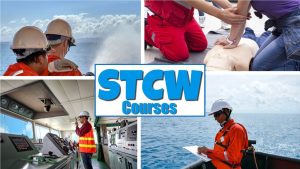The maritime industry plays a vital role in global trade, offering diverse career opportunities both at sea and ashore. From deck officers and marine engineers to maritime logistics professionals and shipping operations managers, the sector provides a dynamic career landscape. Training programs and cadet initiatives, such as the International Maritime Employers’ Council (IMEC) Cadet Training Program launched in India in September 2023, equip aspiring maritime professionals with the skills and knowledge needed for successful careers. This article explores key maritime career paths, top training programs, and job progression opportunities.
Career Paths in the Maritime Industry
The maritime sector offers a broad range of career options categorized into seafaring and shore-based roles:
1. Seafaring Careers
Seafaring roles involve working aboard ships, ensuring safe navigation, cargo management, and vessel maintenance. Key roles include:
- Deck Officers (Navigators): Responsible for ship navigation, cargo operations, and onboard safety. Career progression starts from Cadet to Chief Officer and ultimately Captain.
- Marine Engineers: Maintain and repair ship machinery, propulsion systems, and power generation equipment.
- Electro-Technical Officers (ETOs): Handle the ship’s electrical and electronic systems, including navigation and communication devices.
- Ratings: Support roles such as Able Seafarers, Motormen, and Bosuns, essential for daily ship operations.
2. Shore-Based Careers
Shore-based roles focus on ship management, logistics, and maritime services. Key positions include:
- Marine Surveyors: Inspect ships to ensure they meet safety and regulatory standards.
- Shipping Operations Managers: Oversee cargo logistics, ship scheduling, and port operations.
- Maritime Lawyers: Specialize in shipping contracts, dispute resolution, and regulatory compliance.
- Logistics and Supply Chain Managers: Manage global shipping routes, cargo flow, and inventory management.
Essential Maritime Training Programs
The maritime industry requires specialized training and certifications regulated by international maritime bodies such as the International Maritime Organization (IMO). Notable training programs include:
1. Cadet Training Programs
Cadet training programs provide foundational maritime education, combining academic study with sea-time experience. The IMEC Cadet Training Program, launched in India in September 2023, stands out as a leading initiative offering structured career development.
- Program Highlights:
- Comprehensive training in navigation, engineering, and maritime safety.
- Sponsored sea-time placements with major shipping companies.
- Mentorship from experienced maritime professionals.
2. Maritime Universities and Academies
As the maritime industry evolves, the need for skilled professionals has led to the emergence of top-tier maritime universities and academies worldwide. These institutions provide specialized education and training to prepare students for various careers in the maritime sector. Here’s a look at some of the leading maritime universities based on recent global rankings.
University of Southampton, United Kingdom: Ranked as the top maritime university in the world for 2024, the University of Southampton is renowned for its research-intensive programs and contributions to maritime studies. The university offers a range of undergraduate and postgraduate degrees focused on marine engineering, oceanography, and maritime business. Its strategic location near one of the busiest ports in Europe enhances its practical training opportunities.
Delft University of Technology, Netherlands: Delft University of Technology ranks second globally among maritime institutions. Known for its engineering excellence, Delft offers comprehensive programs in naval architecture and marine technology. The university’s strong emphasis on innovation and research makes it a leader in developing sustainable maritime solutions.
Massachusetts Institute of Technology (MIT), USA: MIT is consistently ranked among the top universities globally and is recognized for its cutting-edge research in marine engineering and ocean sciences. The institution’s interdisciplinary approach allows students to engage in various aspects of maritime studies, from technology development to environmental sustainability.
Shanghai Maritime University, China: Shanghai Maritime University ranks highly among Asian maritime institutions, positioned at #701 in the QS Asia University Rankings 2024. It specializes in maritime transportation, logistics, and marine engineering. The university has made significant strides in research and practical training, contributing to China’s growing influence in global shipping.
California State University Maritime Academy (CSUM), USA: The California State University Maritime Academy is known for its specialized programs in maritime business, logistics, and engineering. CSUM provides hands-on training through its unique cadet program, preparing students for careers in various sectors of the maritime industry.
International Maritime Academy (IMA), India: Located in Chennai, IMA focuses on training deck and engineering officers for the shipping industry. While not ranked among the top global institutions, it plays a crucial role in providing quality education and practical training for aspiring mariners in India.
Norwegian University of Science and Technology (NTNU), Norway: NTNU is recognized for its strong emphasis on engineering and technology, including marine engineering disciplines. The university’s commitment to sustainable practices aligns with global trends toward greener shipping solutions.
State University of New York Maritime College (SUNY Maritime College), USA: Ranked among the top marine colleges in the United States, SUNY Maritime College offers programs that equip students with essential skills for careers in marine engineering, navigation, and logistics.
The landscape of maritime education is characterized by a diverse range of institutions dedicated to preparing students for careers in this vital industry. As global shipping continues to grow and evolve, these leading universities play a crucial role in shaping the future workforce through innovative programs and research initiatives. Their rankings reflect not only their academic excellence but also their commitment to addressing contemporary challenges within the maritime sector.
3. Specialized Short Courses and Certifications
To advance their careers, maritime professionals often pursue short courses and certifications such as:
- Standards of Training, Certification, and Watchkeeping (STCW): Mandatory for all seafarers.
- Dynamic Positioning (DP) Training: Required for operating DP-enabled vessels.
- International Safety Management (ISM) Code Compliance: Focused on ship management and operational safety.
Career Progression and Job Prospects
Maritime careers offer clear pathways for career advancement, driven by experience, additional certifications, and specialized training.
1. Seafaring Career Progression
- Deck Officers: Progress from Deck Cadet to Third Officer, Second Officer, Chief Officer, and eventually Captain.
- Marine Engineers: Advance from Engineering Cadet to Fourth Engineer, Third Engineer, Second Engineer, and Chief Engineer.
- ETOs: Start as Junior ETOs and can progress to Senior ETO and Electrical Superintendent roles.
Case Study: Captain John Richards began his career as a Deck Cadet through a cadet program sponsored by a global shipping company. Over 15 years, he advanced to the rank of Captain, commanding large container vessels and mentoring future cadets.
2. Shore-Based Career Progression
Maritime professionals transitioning ashore can pursue roles such as Fleet Managers, Marine Superintendents, and Maritime Consultants. Experience at sea enhances their expertise in ship operations, making them valuable assets in shipping companies and port authorities.
Emerging Trends in Maritime Careers
The maritime industry is evolving due to technological advancements, creating new career opportunities:
- Autonomous Ship Operations: Roles in remote vessel management and AI-powered navigation.
- Green Shipping and Sustainability: Positions in environmental compliance, alternative fuel management, and decarbonization strategies.
- Cybersecurity Specialists: Addressing digital threats in increasingly connected maritime networks.
The maritime industry offers diverse and rewarding career paths driven by specialized training and global career opportunities. Initiatives like the IMEC Cadet Training Program ensure that aspiring seafarers receive world-class education and practical experience, enabling them to excel in a dynamic and ever-evolving field. With the right training, certifications, and career planning, maritime professionals can navigate a successful and impactful career in the global shipping industry.



